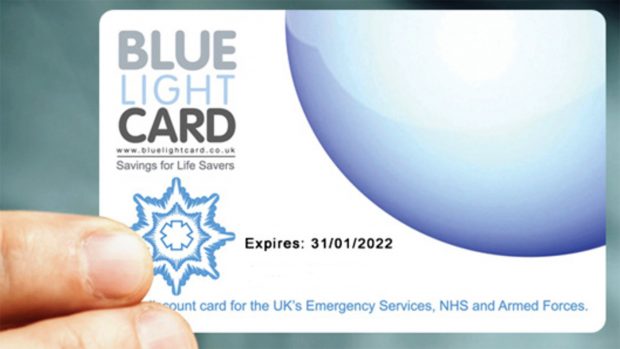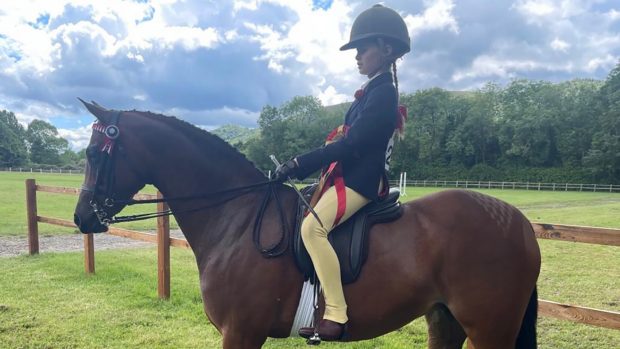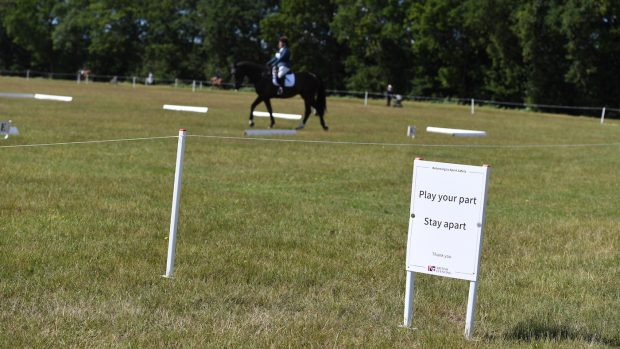We are more than pretty lucky that racing has been able to continue through the pandemic, albeit with a brief hiatus last spring. While most of us haven’t been on a racecourse since March, the fact it has continued is beyond welcome for fans at home as well as those who rely on the industry for an income.
This is not in any way taking a pop at those who have kept the sport going, they should rightly be applauded. Rather, the news that amateurs will not be allowed to ride in races under Rules in Britain from tomorrow (point-to-pointing is currently suspended) raises an interesting discussion around what it means to be amateur and whether the terms “elite” and “professional” can be used interchangeably.
Amateurs have — and do — win in professional races week in, week out. They are elite athletes and are bound by the same regulator as their professional counterparts. Sam Waley-Cohen has won a Cheltenham Gold Cup and I can’t count the number of Graded races Patrick Mullins has on his CV, so does the label of “amateur” instead of “professional” on a licence really make those achievements any less elite?
A similar debate over the term “elite” has also arisen in Ireland where the point-to-point season, which had been permitted to continue, has now but put on hold.
Of course these are not normal times and if by cutting a pool of people from the weighing room, temporarily, it means the sport can keep going and helps stop the spread of this awful virus, then I’m all for it. It’s hopefully not for long and there are bigger issues at play right now. Racing is lucky to be able to continue, competition in the other equestrian disciplines is on a break in Britain and sports were warned only this week not to get complacent and that there are no guarantees.
But that doesn’t mean people aren’t allowed to feel disappointed, and this is a glum if inevitable moment for all those amateurs riding at the top of their game. Yes, it’s good news that hunter chases will go ahead and those horses will get to run, but it’s sad for those amateur riders that they won’t be the ones on board.
Contrary to certain corners of the internet, it is possible to hold more than one feeling at a time. It is possible to be horrified by the impact of the virus and wanting — and willing — to do anything you can to stop it, while also feeling disappointed about other things. It is ok for your thoughts to be somewhere in the middle of the 2020/21 chaotic Venn diagram of major to minor events that our minds are trying to juggle.
I write this as news the start of the 2021 eventing season has been pushed back has just broken, and my heart goes out to eventers in much the same way. The next tab open on my computer screen is about the latest Covid statistics. You don’t have to choose one thing to feel, you can feel something about both.
Going back to the amateur question, defining the wobbly line between professional and amateur in equestrian sport as a whole is the greyest of grey areas. Perhaps clearer is the line between elite and non-elite amateur. Watching British Dressage sorting out its new competition structure in recent years showed how difficult that was to define.
Across all equestrian sport there are those who make a professional living out of riding horses, but for most the amount of prize money they win wouldn’t be their main income. Is someone competing at five-star and who makes most of their money from buying and selling horses an amateur, and by that definition, less elite? Of course not. And by that measure, would it be fair to put a professional rider whose specialist skill set is in a different area — say, producing horses for the leisure market or backing youngsters — in the same class as our Olympic medal-winners just because they are both “professional”? You can see why it is a tricky term to use on how to split things, which is why although certain classes or series may be aimed at the “true amateur” market, other measures are needed to define exactly what that is.
I think it’s likely we will see a sudden uptick in the number of amateurs switching to conditional licences and for some it might mean the moment to turn professional has come sooner rather than later. But I hope it’s not the end of time in the amateur ranks for all of those, as that would be a loss to pointing when that side of the sport is allowed to resume.
Anyway, let’s hope this break is short-lived. Vaccinations are happening, in many cases, at the racecourses we can’t all be back at yet, and here’s to hopes of a brighter spring for all corners of equestrian sport and the wider world.
Horse & Hound magazine, out every Thursday, is packed with all the latest news and reports, as well as interviews, specials, nostalgia, vet and training advice. Find how you can enjoy the magazine delivered to your door every week, plus options to upgrade to access our H&H Plus online service which brings you breaking news as it happens as well as other benefits.





